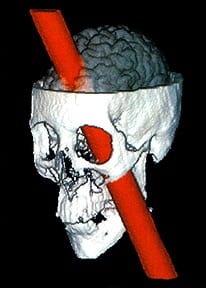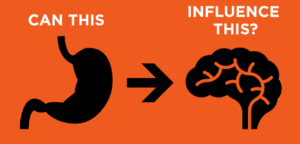 It is a widely held belief that the best decisions are made without the interference of emotions. Economists and statisticians alike stand fast to this belief – the best decisions are made using pure logic. Facts and formulas lead to the most rational decisions. But do they?[tweet this] Imagine for a moment if the emotional control center of a person’s brain were removed. Would that person then make better decisions? To answer that question I want to introduce you to Phineas Gage.
It is a widely held belief that the best decisions are made without the interference of emotions. Economists and statisticians alike stand fast to this belief – the best decisions are made using pure logic. Facts and formulas lead to the most rational decisions. But do they?[tweet this] Imagine for a moment if the emotional control center of a person’s brain were removed. Would that person then make better decisions? To answer that question I want to introduce you to Phineas Gage.
Gage was a construction foreman for a railroad company and on September 13, 1848 he sustained an injury that made him the subject of neuro-researchers to this day.

While placing an explosive charge into a rock using a tamping rod, the ordinance accidentally detonated and the three-foot, seven inch rod went through Gage’s skull.
Amazingly, Gage survived an injury that would, to this day, be fatal to many. His physical recovery was no less amazing to doctors. Within ten weeks of the injury Gage returned to work. Life was normal again. Or was it?
There was something fundamentally wrong with Gage. He suffered no memory loss and no motor skill deficits (sans the loss of his left eye and the depth perception challenges it might create from having monocular vision). But Gage was clearly “different.”
His behavior had changed. In addition to a change in his personality, one of the most notable deficits was Gage could no longer make a coherent decision. The accident destroyed a portion of his brain in the frontal lobe that controls emotions. Gage could no longer make good decisions for the lack of emotional input into the process.[tweet this]
Many subsequent studies involving patients with traumatic brain injuries, lesions and tumors have validated the importance of the emotional control center in the process of decision making. We now know that emotions are a critical component of decision making, though economists and statisticians might still choose to disagree.
Thanks to the advances in modern medicine, researchers are now able to gauge a person’s emotional response to a stimulus and predict behavior long before the (apparent) rational decision is made.
 One study I recall reading involved asking Chief Executive Officers to register their “gut” (emotional) solution to a problem prior to embarking on the long, often difficult and timely journey of gathering all the facts and evidence needed to make a “good” decision. When the dust settled, in a vast majority of the cases, the emotional “gut” decision equaled or was better than the rational, non-emotional decision.
One study I recall reading involved asking Chief Executive Officers to register their “gut” (emotional) solution to a problem prior to embarking on the long, often difficult and timely journey of gathering all the facts and evidence needed to make a “good” decision. When the dust settled, in a vast majority of the cases, the emotional “gut” decision equaled or was better than the rational, non-emotional decision.
The ability of the emotional brain to solve problems and influence decision making is the very concept that Malcolm Gladwell wrote about in his best-selling novel, Blink. While Gladwell is not a researcher, his writing is well-researched and, for the most part, accurately portrayed.
The take away: Emotions are essential – no, critical – to making quality decisions.[tweet this] I do not advocate making purely emotional decisions. Rather, I’d say trust your gut, but validate it with some proof – facts and data – that confirm you’re on the right track. But never dismiss your gut feelings. They’re telling you something… and the message is coming right from your prefrontal cortex.
_____________________________________________________________
The mission of Situational Awareness Matters is simple: Help first responders see the bad things coming… in time to change the outcome.
Safety begins with SA!
_____________________________________________________________
Share your comments on this article in the “Leave a Reply” box below. If you want to send me incident pictures, videos or have an idea you’d like me to research and write about, contact me. I really enjoy getting feedback and supportive messages from fellow first responders. It gives me the energy to work harder for you.
Thanks,

Email: Support@RichGasaway.com
Phone: 612-548-4424
Facebook Fan Page: www.facebook.com/SAMatters
Twitter: @SAMatters
LinkedIn: Rich Gasaway
YouTube: SAMattersTV
iTunes: SAMatters Radio


Pingback: How we decide | Situational Awareness Matters!™
Pingback: How we decide | Situational Awareness Matters
Pingback: How we decide - Situational Awareness Matters!™Situational Awareness Matters!™
Hi Rich,
Great article! Our emotions in any given moment are influenced by our experiences of the past. That is what makes a seasoned officer better than one straight out of the academy, with only book learning and knowledge. Our emotions of uneasiness are what cause us to deal with or change something before the bad stuff happens!
Stay Safe!
I couldn’t agree more. I regularly teach people to “trust their instincts”. You may not be able to put it into words or rationally explain it on the spot, but you are probably unconsciously registering inputs and you are probably right.
That is interesting. I have always maintained that emotion should be removed from the decision making process.
Mike,
It is impossible to remove emotions from decision making. We are human. There will always be an element of emotions in all our decisions. In fact, one study of executives showed that their emotionally driven thoughts about what to do are often more accurate (or correct) than those decisions that take months of careful analytical analysis. Analysis is ok. But emotions will play a part too. Thanks for the response. ~Rich
Pingback: 6 Ways You May Be Keeping Yourself Stuck » Curiosity In Motion